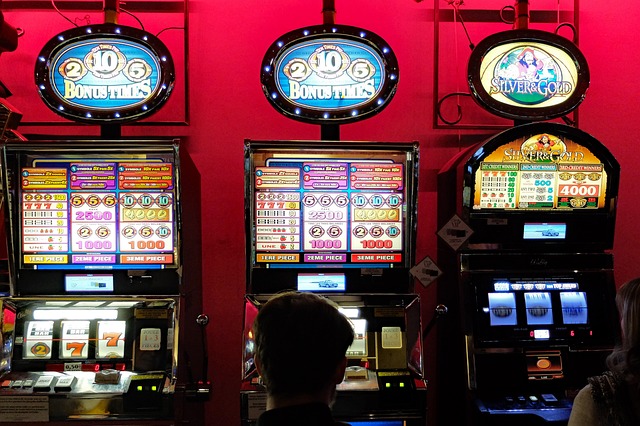Every spin on a modern slot machine feels like a moment of pure chance—and it is. The key mechanism behind this unpredictability is the Random Number Generator (RNG). It’s the invisible system that decides every win and loss, ensuring fairness when properly implemented. Understanding how RNG works helps players see beyond myths and make smarter, more informed choices in both land-based and online casinos.
The Basics of RNG in Slot Machines
At its core, an RNG is a piece of software that continuously produces random numbers. It doesn’t wait for you to press “spin.” Instead, it generates thousands of numerical sequences per second, each corresponding to a possible reel position. The moment you initiate a spin, the machine captures the current sequence, translates it into symbols, and displays the result on screen.
This process is instantaneous and independent. What you see—cherries, bars, or sevens—is simply the visual representation of a numerical outcome determined by the RNG at that exact millisecond. There’s no memory, no pattern, and no adjustment based on your previous results.
Key characteristics of RNG-based slots:
| Feature | Description | Effect on Player |
|---|---|---|
| Continuous generation | RNG runs even when idle | Each spin is independent |
| Seed value | Starting point for number sequence | Ensures unpredictability |
| Algorithm | Mathematical formula for randomization | Prevents repetition |
| Fairness tests | Verified by auditors | Confirms game integrity |
Why RNG Matters for Fair Play

Before RNGs, mechanical slot machines relied on gears and springs, which could wear down or be manipulated. The introduction of RNGs eliminated these mechanical vulnerabilities. Fairness became a function of verified software, not hardware precision.
Independent testing agencies audit casino software to confirm that RNGs are working as intended. These agencies, such as GLI or eCOGRA, run millions of simulated spins to check if outcomes follow the correct statistical distribution. When they do, the game can be certified as fair.
The benefit for players is consistency: every spin, regardless of time or bet size, has exactly the same chance of winning as the last.
Common Misconceptions
- “Machines get hot or cold.”
Slots don’t remember past results. A long losing streak doesn’t increase your odds of winning. - “Casinos can control outcomes in real time.”
Licensed operators cannot alter individual spins. RNGs are sealed in certified software modules. - “There’s a best time to play.”
Because the RNG runs continuously, the timing of your spin doesn’t change your chances.
How RNG Affects Volatility and RTP
While RNG determines randomness, game designers use math to control payout structure and frequency. Two main factors define a slot’s long-term behavior: volatility and Return to Player (RTP).
Volatility measures how often and how big wins occur.
- Low-volatility slots pay smaller amounts more frequently.
- High-volatility slots produce fewer but larger wins.
RTP, expressed as a percentage, shows the theoretical amount returned to players over time. For example, a 96% RTP means that over thousands of spins, the game will return $96 for every $100 wagered on average. RNG ensures that individual sessions fluctuate around this long-term average but never follow a fixed pattern.
Practical takeaway:
- Choose low-volatility slots if you prefer steady play and longer sessions.
- Choose high-volatility slots if you’re comfortable with risk and chasing big wins.
How RNGs Are Protected from Manipulation

Because fairness relies on RNG integrity, protection is critical. Casinos and regulators implement several layers of security:
- Encryption: RNG code and results are encrypted to prevent tampering.
- Licensing: Casinos must use certified software from approved vendors.
- Audits: Regulators conduct periodic random checks and re-certifications.
- Isolation: The RNG module operates separately from casino servers to prevent interference.
Tips for Players
Players can’t see the RNG, but they can verify trustworthiness by checking for:
- A valid gaming license (Malta, UK, Curacao, etc.).
- Publicly stated RTP percentages in the game info section.
- Recognition from third-party auditors or labs.
Avoid platforms that hide this information. Transparency is a minimum requirement for fair play.
The Future of RNG and Fairness Technology
As online gambling grows, RNG systems are evolving. Blockchain-based “provably fair” algorithms now allow players to verify results themselves. Instead of relying solely on audits, the system makes every seed and result traceable and mathematically verifiable.
Artificial intelligence may soon assist in real-time monitoring, ensuring no algorithm drift or bias occurs over millions of spins. Still, the principle will remain the same: fairness through randomness and independent verification.
For players, the takeaway is straightforward—fairness isn’t about luck manipulation but about statistical integrity. The next time you hit “spin,” remember that behind the flashing lights is a precise algorithm doing exactly what it’s meant to do: produce a fair, unpredictable result every single time.
